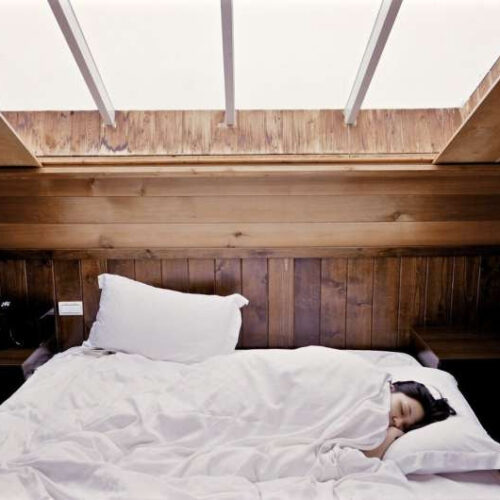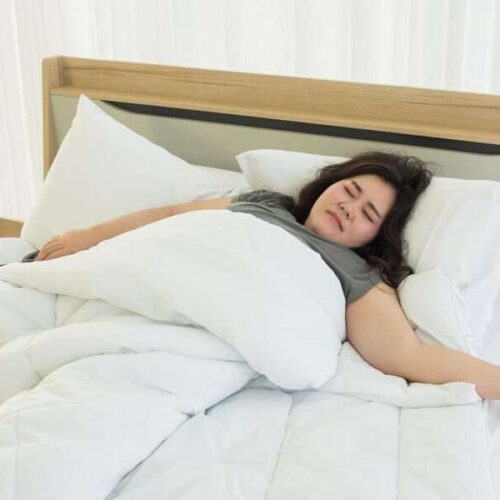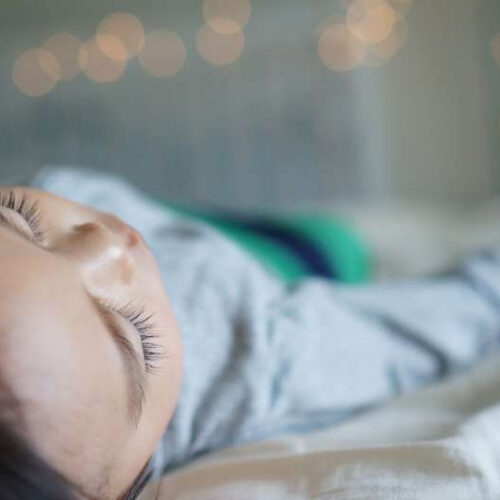by Wiley Credit: CC0 Public Domain With heatwaves occurring more frequently, investigators from the European Insomnia Network recently explored how outdoor nighttime temperature changes affect body temperature and sleep quality. Their review of the literature, which is published in the Journal of Sleep Research, indicates that environmental temperatures outside the thermal comfort can strongly affect human...
Tag: <span>Sleep problems</span>
Sleep problems can lead to teen depression
by Flinders University Credit: Pixabay New evidence suggests that sleep difficulties, long thought to be a symptom of adolescent depression, might actually come first. A new paper, published in Nature Reviews Psychology and led by Flinders University, argues that a combination of adolescent sleep biology and psychology uniquely predispose young people to developing depression. Flinders University graduate...
Sleep problems not a major issue in rheumatoid arthritis
Sleep problems are not excessive in patients with newly diagnosed rheumatoid arthritis, according to a study recently published in RMD Open. Lauren Lyne, from the Karolinska Institutet in Stockholm, and colleagues investigated sleep quality and duration in 3,265 patients with newly diagnosed rheumatoid arthritis (1998 to 2018) and during one to 12 years after diagnosis. The researchers found...
Sleep problems pervasive and persistent among children with epilepsy
by University of Michigan Credit: Pixabay/CC0 Public Domain For children with epilepsy, seizures and related health concerns can disrupt every part of childhood, including sleep. Now, a new study finds that not only are reported sleep concerns highly prevalent in children with epilepsy—for both those with and without nighttime seizures—but these issues persist and may potentially...
BRAIN SCANS LINK BABY SLEEP TROUBLE AND AUTISM LATER
Sleep problems in a baby’s first 12 months may not only precede autism diagnosis, but also associate with an altered growth trajectory in the hippocampus, a new study suggests. Infants spend most of their first year of life asleep. Those hours serve as prime time for brain development, when neural connections form and sensory memories...
Too little sleep can be bad for women’s bone density
POSTED BY DAVID HILL-BUFFALO (Credit: Getty Images) Getting five or fewer hours of sleep a night is associated with low bone mineral density and higher odds of osteoporosis, researchers report. “Our study suggests that sleep may negatively impact bone health, adding to the list of the negative health impacts of poor sleep,” says lead author Heather...
Is diabetes keeping you up at night?
New study confirms associations between type 2 diabetes and sleep problems in midlife women CLEVELAND, Ohio (August 14, 2019)–Hormone changes are known to alter insulin sensitivity and glucose metabolism, as well as interfere with women’s sleep patterns. But little was known about the association between diabetes and sleep disturbances during the menopause transition until now,...
Take a bath 90 minutes before bedtime to get better sleep
by University of Texas at Austin Biomedical engineers at The University of Texas at Austin may have found a way for people to get better shuteye. Systematic review protocols—a method used to search for and analyze relevant data—allowed researchers to analyze thousands of studies linking water-based passive body heating, or bathing and showering with warm/hot water,...
Sleeping in Doesn’t Mitigate Metabolic Changes Linked to Sleep Deficit
Rita Rubin, MA JAMA. Published online May 15, 2019. doi:10.1001/jama.2019.4701 One of the first studies to suggest that insufficient sleep can disrupt metabolism came out 2 decades ago. And yet, despite growing evidence that inadequate slumber is a risk factor for obesity and diabetes, approximately a third of US adults sleep fewer than the 7 hours a night recommended by the American Academy...
Sleep problems in teenagers reversed in just one week by limiting screen use
EUROPEAN SOCIETY OF ENDOCRINOLOGY Sleep in teenagers can be improved by just one week of limiting their evening exposure to light-emitting screens on phones, tablets and computers, according to findings to be presented in Lyon, at the European Society of Endocrinology annual meeting, ECE 2019. The study indicates that by simply limiting their exposure to...
- 1
- 2




